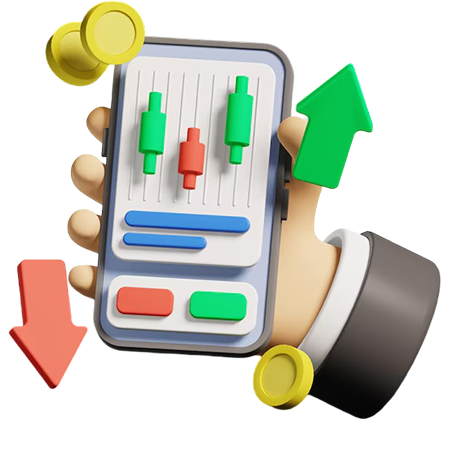Forex CFD (Contract for Difference) trading is a powerful financial instrument that allows traders to speculate on the price movements of currency pairs without owning the underlying assets. It is a flexible, leveraged trading method that appeals to both novice and experienced traders. In this guide, we will explore everything you need to know about Forex CFD trading, including how it works, its advantages, potential risks, trading strategies, and tips for success.
Forex CFD trading involves trading contracts based on the price movements of foreign exchange (forex) currency pairs. Unlike traditional forex trading, where traders buy and sell actual currencies, CFDs allow traders to speculate on the price difference between the opening and closing prices of a currency pair.
A Forex CFD is essentially an agreement between a trader and a broker to exchange the difference in value of a currency pair from the point when the contract is opened to when it is closed. Traders can profit by predicting whether a currency pair will rise or fall in value without physically owning the asset.
Traders select a currency pair such as EUR/USD (Euro/US Dollar) or GBP/JPY (British Pound/Japanese Yen). Currency pairs are classified into three categories:
Major Pairs – EUR/USD, USD/JPY, GBP/USD, etc.
Minor Pairs – EUR/GBP, AUD/NZD, CAD/CHF, etc.
Exotic Pairs – USD/TRY, EUR/ZAR, GBP/MXN, etc.

Traders can take either of the following positions:
Go Long (Buy Position) – If a trader believes the price of a currency pair will rise, they open a long position.
Go Short (Sell Position) – If a trader expects the price to fall, they open a short position.
Forex CFDs offer leverage, allowing traders to control larger positions with a small initial investment (margin). For example, a leverage of 1:100 means that with $1,000, a trader can control a position worth $100,000.
The trade is closed when the trader decides to take profit or cut losses. The broker calculates the difference between the opening and closing price to determine profit or loss.
Forex markets operate 24 hours a day, five days a week, giving traders access to global opportunities.
Leverage allows traders to take larger positions with less capital, increasing potential profits (but also risks).
Forex CFDs provide flexibility by allowing traders to profit from both rising and falling markets.
Traders have access to major, minor, and exotic currency pairs, providing numerous trading opportunities.
Compared to traditional forex trading, Forex CFDs often have lower transaction costs and tighter spreads.
Forex markets can be highly volatile, leading to rapid price fluctuations and potential losses.
While leverage amplifies potential profits, it also increases the risk of losing more than the initial investment.
Holding CFD positions overnight may incur swap or rollover fees.
Market conditions can cause gaps and slippage, resulting in unexpected losses.
CFD trading regulations vary by country, and traders must ensure they use a reputable, regulated broker.
Traders analyze long-term trends and enter trades in the direction of the prevailing market movement.
A short-term strategy where traders make multiple small trades to capture quick profits.
Traders open and close positions within a single trading day to avoid overnight fees.
A medium-term strategy where traders hold positions for several days or weeks to capitalize on price swings.
Traders enter positions when prices break through key support or resistance levels.
Select a regulated broker with competitive spreads, fast execution, and robust security.
Set stop-loss and take-profit orders to minimize losses and lock in profits.
Economic events and geopolitical developments can impact forex prices.
Before trading with real money, use a demo account to refine strategies.
A well-defined plan helps maintain discipline and prevents emotional trading decisions.
Forex CFD trading offers numerous opportunities for traders to profit from currency price movements. However, it comes with risks that require proper risk management, strategic planning, and continuous learning. By understanding the market, using effective trading strategies, and practicing disciplined trading habits, traders can enhance their chances of success in the competitive forex market.
